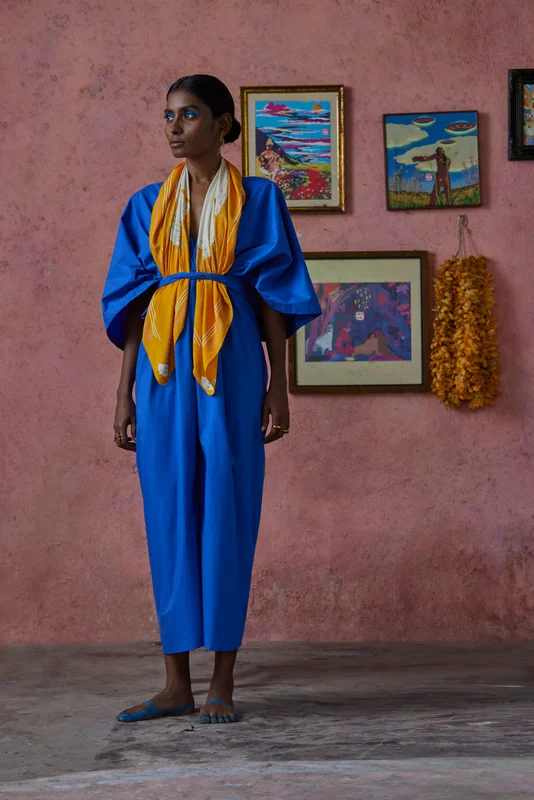
A year ago, I made a dramatic pivot in my career. I left a successful position as a marketing executive, and founded (and self funded) an artisan-centric start up called The Postcard Edit.
I’m sure people close to me have at times wondered whether I’m having an early mid-life crisis, and I myself have marveled at the leap of faith.
Throw in a pandemic, mass disruption of global supply chains and dramatic shifts in consumer behavior, and it’s easy to miss and romanticize a more comfortable and predictable career trajectory.
This year has been full of curveballs, breakthroughs, and incredible lessons, and I wanted to sit down and document my takeaways, not from the lens of success/failure but in the spirit of curiosity, and contributing, in whatever small way, to the greater project of reimagining capitalism and industry to be more inclusive, and humane.
I was initially drawn to artisan goods because I felt like the process of making something by hand, that had been passed down over multiple generations, was a much needed balm and antidote to the frenzied consumerism of our techno-rational worldview. I felt like it represented a more soulful means of production and if we could weave artisan goods into our lifestyles, and learn to value them, we could empower traditional makers, and kindle more mindfulness in our day-to-day.
What I didn’t realize then was that artisan production poses some serious, if ultimately surmountable, business challenges.
Artisan goods are more expensive to make and sell, take longer to produce, and require new models/expectations for quality control. Their production also raises ethical concerns around appropriation and representation that have to be engaged with rigor, rather than swept under the rug.
Here are the three pieces of advice I wish I’d received when I got started, and that have since come to constitute a kind of informal playbook for me.
1) Think like a global citizen, not a tourist.
To engage in ethical artisan production and not merely capitalize on a trend, one has to become a master translator, between cultural and design contexts, as well as between analog and digital.
Thoughtful curation and collaboration across borders require sensitivity and a willingness to question one’s own biases and conditioning. They also require engagement that transcends the voyeuristic and acquisitive stances that are so often a ready default for westerners relating with formerly colonized nations.
Over the past year, I’ve learned that every perspective, no matter how foreign, bears its own gifts, and the goal is not to be a savior or even an evangelist, but to be an active player in forming new networks that create abundance, and enable fair trade.
2) Think like an investor, not a charity.
Creating a path to market for handicrafts requires accepting artisan expertise on its own terms, while guiding collaboration according to time-tested business practices, such as listening to the market, testing a minimum viable product, and remaining agile.
Without compounding returns, a business becomes a hobby or a poorly run non profit. Thus, it’s essential to cultivate a long term vision and establish clear metrics for financial viability and growth.
Even though so much of the marketing for an artisan brand consists of educating consumers, it’s imperative to also address actual pain points and connect products with a bigger vision.
If what you’re offering doesn’t connect at a gut level with real customers, then you need to go back to the drawing board. (And in the case of major world events like the pandemic, you may need to pivot your offering based on the collective mood and climate.)
3) Think like an artisan, not a machine.
Though we often define artisan, at The Postcard Edit
, as a multi-generational handicraft worker, I’ve also come to regard artisan as a mindset, one that emphasizes process, beauty and expression.
I’ve learned that anything worth scaling must first be crafted with love, that imperfection is the most human design signature, and inspiration is as vital a natural resource as gold, oil or data.
However large we grow, or small we stay, this will remain core to our brand, and our purpose.
Starting an artisan brand is a risk, one best channeled into and met with entrepreneurial zeal. Like most entrepreneurial ventures, it is fueled by an ability to see and believe in something that doesn’t exist yet, and persevere until it is brought to life. And the reward, I’m surprised to discover, is the experience itself.
Through my journey, I’ve met extraordinary individuals, created beautiful things, gained a new appreciation for the patience of craft, and reveled in a smaller, stranger world.
As we prepare to move into a new year with artisan collaborations lined up in Pakistan, Nigeria and Indonesia, I find myself feeling grateful and proud of how far we’ve come.
My team and I have bonded across borders, explored new terrain and, most importantly, gained a glimpse into a more sustainable way of life, one in which how something is made, and by whom, is as important as its cost or convenience.
And I wouldn’t trade that for any 401(k) or reliable 9 to 5.






